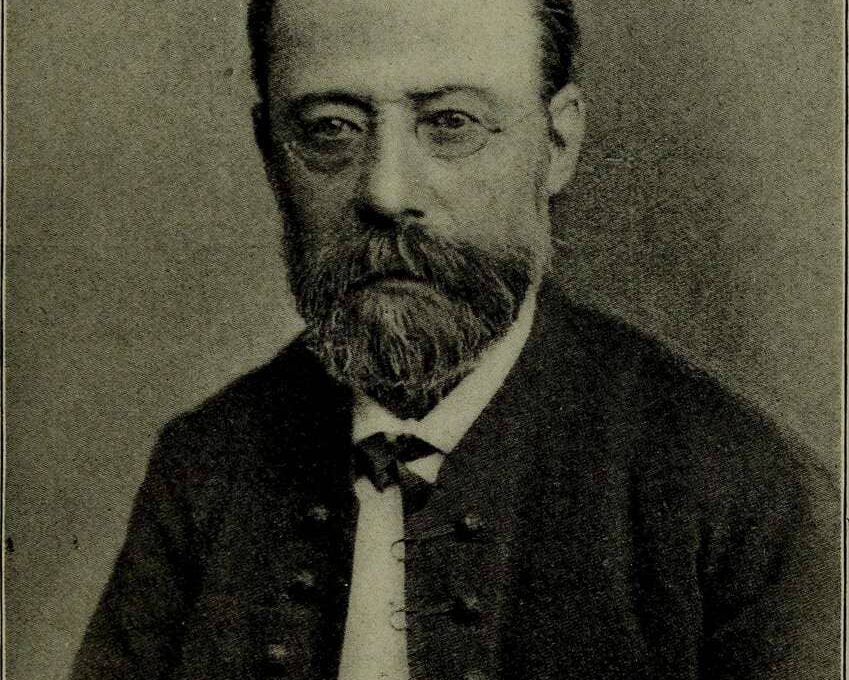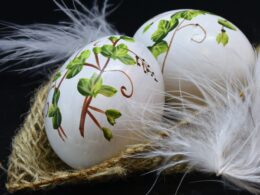Table of contents Show
The Czech music master Bedrich Smetana famous works left an unmistakable influence on the world of classical music, and his most well-known pieces, such as “Má Vlast” and “The Moldau,” are still performed and enjoyed today. Emerging from the shadows,musical genius Bedrich Smetana famous works will live on as an emblem of national pride and inspiration for future generations.
The period of Romantic nationalism coincides with Smetana’s most fruitful contributions to classical music. Particularly in areas under foreign administration, like Bohemia, which was a part of the Austrian Empire, this time period was distinguished by a renaissance of national identity and pride. Smetana was a fervent supporter of the Czech national struggle, and his music became a means by which the Czech people could voice their cultural ideals.
Bedich Smetana made an incalculable impact on Czech music, and his works have now attained a universal appeal that defies categorization by historical period or national origin.
Bedrich Smetana Pronunciation: How to Say His Name Correctly
Bedrich Smetana was a well-known Czech composer, although his name can be difficult to pronounce for non-Czech people. Here’s a guide to accurately pronouncing his name:
Bedřich:
The word “bed” rhymes with “red.”
“řich” is pronounced similarly to “reech,” with the “” being a distinctive Czech letter known as “ř” or “řeka,” which is heard as a soft “r” followed by “eech.”
As a result, “Bedřich” is pronounced “bed-reech.”
Smetana:
“Sme” is pronounced similarly to “smay,” with the “e” sounding similarly to the “e” in “let.”
The letter “ta” is pronounced “tah,” with the letter “a” pronouncing “ah,” as in “car.”
The word “na” is pronounced “nah.”
As a result, “Smetana” is pronounced “smay-tah-nah.”
Putting everything together, Bedřich Smetana pronunciation is “bed-reech smay-tah-nah.”
Keep in mind that the Czech language includes distinctive sounds and characters that may not have clear English equivalents, so pronunciation may require some practice.
Bedrich Smetana: A Brief Biography
According to Bedrich Smetana biografia, he was born on March 2, 1824, in the small town of Litomyšl, which was then in the Bohemian Kingdom but is today in the Czech Republic. Smetana’s extraordinary musical talent was evident from childhood. František Smetana’s his father, an amateur violinist, and brewer, recognized his son’s talent at a young age and pushed him to pursue it.
Smetana faced many obstacles on his way to becoming a famous composer. He had trouble hearing and was deaf for brief periods of his career, which only deepened his dedication to music. A student of several notable musicians of his day, he eventually settled in Prague and made a name for himself there as a pianist, conductor, and writer.
Bedrich Smetana: The Life and Music of a Czech Composer
Bedrich Smetana music ambition saw him travel to Prague, the charming capital of the Czech Republic and a bustling hub of artistic activity. This change was a watershed event in his life, as he immersed himself in his musical studies and welcomed the city’s thriving cultural scene.
In Prague, Smetana grew as a musician, performing as a pianist, conductor, and educator while also devoting countless hours to perfecting his own compositions.
Bedrich Smetana’s Ma Vlast: An In-Depth Analysis of Vltava – ‘My Country’
“Ma Vlast” and “Vltava” by Bedrich Smetana are two of his most famous and enduring compositions that epitomize his brilliance and the Czech musical tradition, but he created a significant body of work that may be seen in one of the best classical venues in Prague.
“Ma Vlast” – My Homeland
Bedrich Smetana’s my country (“Ma Vlast”) is a sequence of six symphonic poems that encapsulates his dedication to depicting the diverse culture and scenery of the Czech Republic. The six works that make up “Ma Vlast” each pay homage to a different facet of Czech culture and history. It has pieces like “Vyšehrad,” which is inspired by the Prague hill of the same name, and “Tábor,” which alludes to the Hussite Wars.
The spirit of the Czech people and their devotion to their homeland are beautifully captured in “Ma Vlast,” composed by Smetana.
“The Moldau” – A Journey Down the River
The Moldau” (Vltava in Czech) from “Ma Vlast” is one of the most recognizable pieces of classical music. The Moldau is a musical allegory for the Vltava River, which winds its way through the countryside of Bohemia and is the longest river in the Czech Republic. From its mountainous beginnings, the piece follows the course of the river as it winds through woods and meadows, past quaint towns and imposing fortresses, and finally into a magnificent marriage with the Elbe.
Not only will “The Moldau” resonate with Czechs, but also with anyone who values nature and the flow of water, thanks to Smetana’s use of vibrant orchestration and lyrical storytelling.
Other famous works of Bedrich Smetana
Although composer Bedrich Smetana is primarily remembered for his massive works such as “Ma Vlast” and “The Moldau,” he also wrote several operas, chamber works, piano pieces, and orchestral works that you can enjoy watching at the Black light theatre in Prague. Some of his other well-known works are as follows:
The Bartered Bride (Prodaná nevěsta)
The most well-known and adored operas is “The Bartered Bride” (Prodaná nevsta). It’s a lighthearted opera about a community in the Czech Republic that plays matchmaker for its residents. The opera’s appealing melodies and traditional touches have won it widespread acclaim.
String Quartet No. 2 in D minor
From My Life, or String Quartet No. 1 in E minor (in the Czech original, Smyčcový kvartet č. 1 e moll, “Z mého ivota”)Autobiographical references are a significant feature of this string quartet. Smetana wrote about his struggles with deafness and other personal situations.
Smetana’s Piano Trio in G Minor, Op. 15
This is a stunning and moving piece of chamber music that demonstrates his talents as a composer. It’s well-known for its depth of feeling and introspection.
This string quartet
Commonly known as “Quartet No. 2 in D minor,” is another important addition to the canon of chamber music. It demonstrates the Romantic sway that influenced Smetana’s music.
Overture to “The Bartered Bride” (Prodaná nevěsta)
This orchestral piece is an overture from Smetana’s well-known opera, “The Bartered Bride” (Prodaná nevsta). This work reflects the essence of the opera’s themes in a way that is both vibrant and spirited.
These six piano pieces
Titled Šest charakteristických skladeb, or “Six Characteristic Pieces,” are a compilation of character compositions. They shed light on the range of styles Smetana employed in his compositions.
Czech Dances (České tance)
Smetana captured the colorful and spirited dancing customs of his native Czech Republic in a series of compositions for piano titled Czech Dances (eské tance).
The Two Widows (Dvĕ vdovy)
Another lovely work by Smetana, “The Two Widows” (Dvĕ vdovy) is a comedy opera. Its themes of love, marriage, and social customs make it a joy to listen to.
Richard III
Smetana’s overture to “Richard III,” based on Shakespeare’s play, is a classic example of his symphonic skill.
A Visit to the Bedrich Smetana Museum in Prague
A trip to the Bedrich Smetana Museum in Prague is an excellent way to learn about the life and work of this renowned Czech composer and to immerse yourself in the country’s rich musical tradition. It is a must-see for music aficionados and history buffs in Prague since it takes visitors deep into Bedich Smetana’s universe and the cultural backdrop that shaped his work.
The museum in Prague honors Bedrich Smetana famous work; It is a cultural treasure that sheds light on the composer’s life and his significant contributions to the development of Czech music.
Enchanting Prague Classical Concert at St. Nicholas Church
Discover the sheer splendor of classical music within the captivating confines of one of Prague’s most magnificent Baroque sanctuaries. Nestled in the heart of the Old Town, St. Nicholas Church plays host to an array of mesmerizing performances featuring the virtuosity of accomplished musicians from the esteemed National Theatre and Czech Philharmonic Orchestra.
Highlights
- Revel in a diverse repertoire of classical masterpieces interpreted by Prague’s foremost musical talents.
- Immerse yourself in the unique ambiance of a Baroque church while being serenaded by the harmonious strains of classical compositions.
- Be transported by the ethereal interior and impeccable acoustics of St. Nicholas Church.
- Gaze upon the Baroque organ once graced by the legendary Mozart himself in 1787.
Included
- Admission ticket to the performance.
- Complimentary printed program in English.





